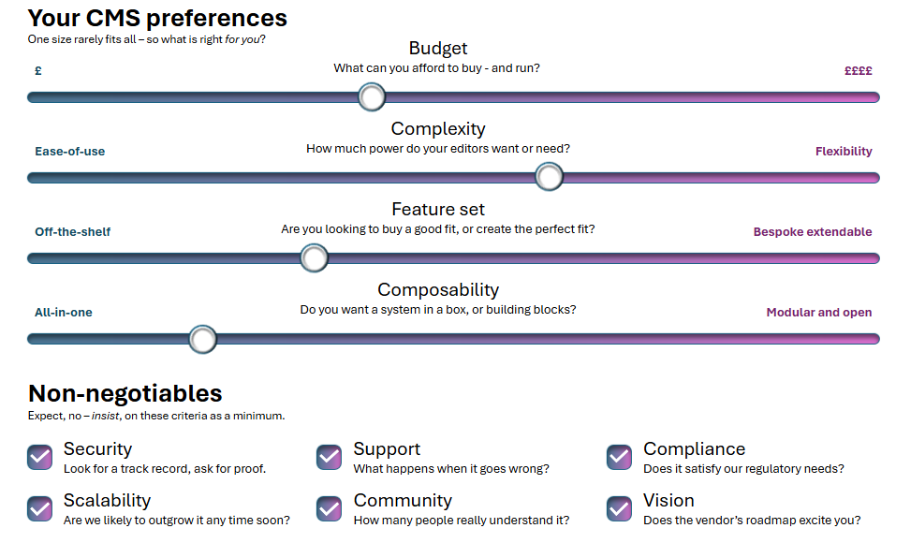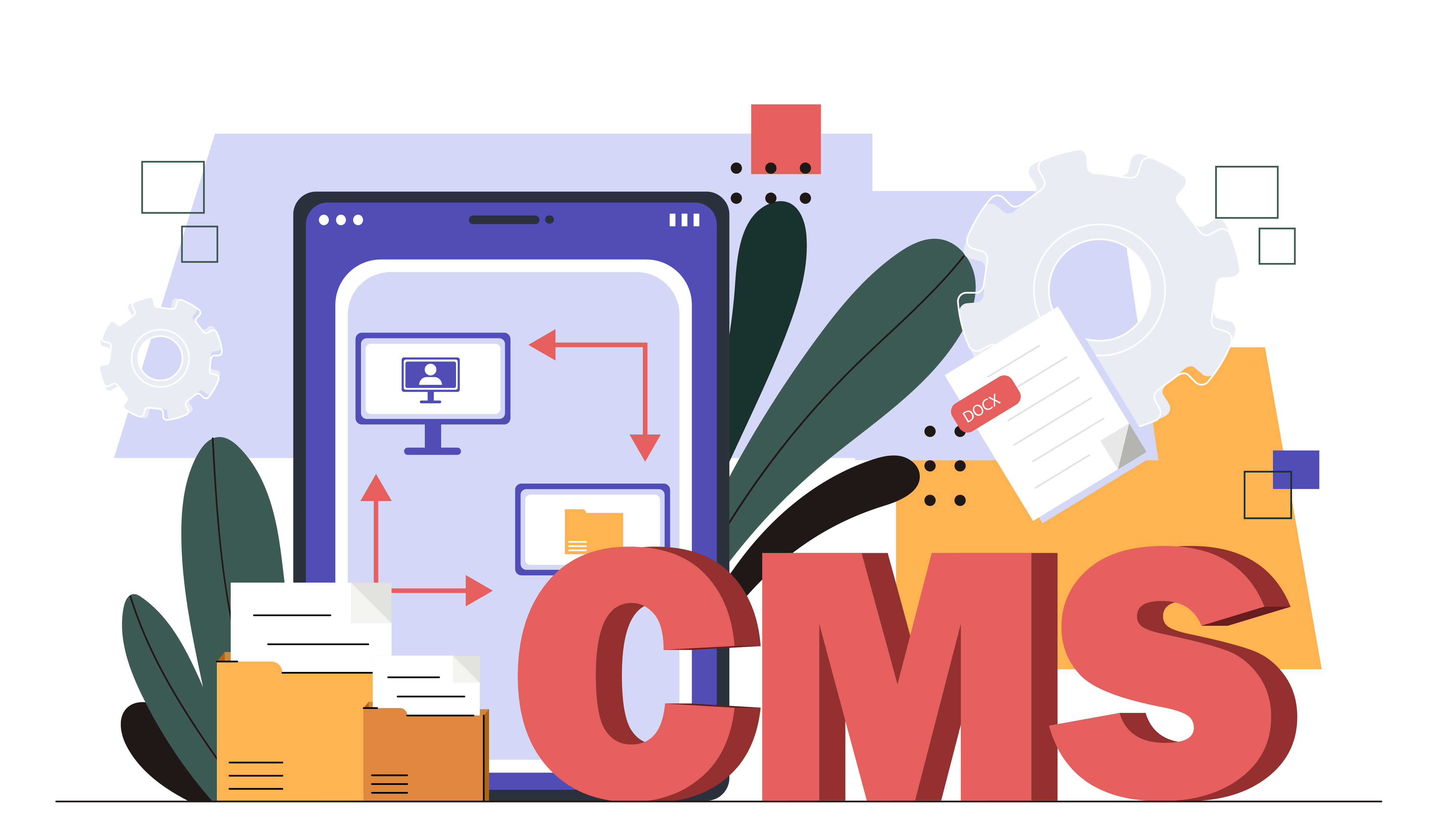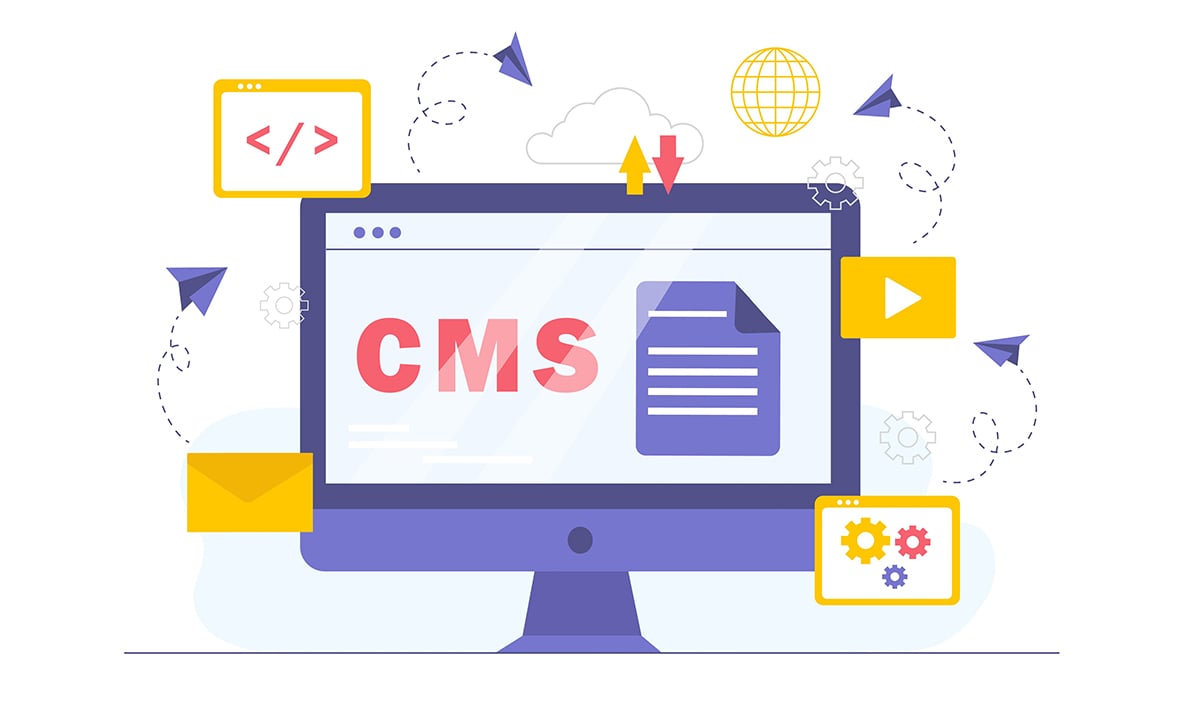The digital backbone of your firm deserves careful thought.
For professional services firms, reputation and expertise are everything. Increasingly, those qualities are experienced online first through your website, your content, and the digital touchpoints that connect you to clients.
At the centre of that experience sits your Content Management System (CMS). It’s the quiet powerhouse enabling your teams to move fast, maintain compliance, and showcase the insights that define your brand.
With hundreds of CMS platforms on the market, choosing the right one can feel daunting. The truth is, it’s not about finding the best CMS; it’s about finding the best fit for your firm’s goals, people, and digital maturity.
Why your CMS choice really matters
A CMS isn’t just a backend system. It can and should, drive efficiency, security, flexibility, user experience, and play a direct role in how firms attract and serve clients online. Getting the ‘CMS’ “right” can enable marketing teams to move quickly, while the wrong one can slow everything down.
Some recent research from IMG collected from 250 + interviews with senior marketers tell us;
- 60% of marketers’ time isn’t spent on marketing.
- 71% of senior marketeers say they often lose creative time because they have to troubleshoot their technology
Your CMS should allow your team to create and update content without relying on IT. If the CMS is clunky, you’ll see bottlenecks and campaigns grinding to a halt.
It needs to be optimised for SEO and user experience with things like page speed, metadata management, and mobile responsiveness built in.
You need personalised experiences for different audiences, which is increasingly important for firms wanting to stand out in a competitive market.
A good CMS integrates seamlessly with analytics and marketing automation tools, helping teams understand what’s working and what’s not.
Finally, as the firm grows, launches new services, or expands internationally, the CMS needs to grow with you, and support that without costly re-platforming every couple of years.
Open source or licensed? Understanding the landscape
Appius are a .net development house, which means that we chose to develop code in the Microsoft software development framework and ecosystem. Within this, the CMS’s that we build in are Sitecore, Progress Sitefinity, Optimizely and Umbraco (which is an unlicensed open-source option).
The first big differentiator is between open source (like Umbraco) versus a licensed model. An open-source CMS doesn’t have any licensing costs. Its community driven, and in the case of Umbraco, it’s backed by Microsoft, but has lots of contributions from developers worldwide.
A down-side is that community packages (so features that you use that were built by someone else), may not have the same SLA’s as licensed enterprise tools. So, if they break, they break. Some organisational legal and compliance teams are uncomfortable with the open nature of the code with some perceived risk.
The licensed .net CMS’s all come with formal SLA’s to fix bugs, produce updates, and critical patches. They offer dedicated support, often with compliance certifications and regular penetration testing, and suited to large scale global sites with millions of visitors annually. They also often include caching, Content Delivery Network integration and scaling tools out-of-the-box. So that’s the techy stuff!
The most exciting part of licensed CMS’ is the rich feature sets available. Such as personalisation and marketing automation capabilities, and advanced workflows within the CMS, meaning your editors and content writers can work at scale, but the firm is safe in the knowledge of tight approval process.
They have multi-site and multi-language capabilities and established built in analytics and reporting. They offer ecommerce integration and functionality, which is an interesting expansion of traditional professional services firms for exploring subscription models within their offering that can be purchased through the website.
All these features can be built in using an open source, non-licensed model, but very likely will require plug-ins (which need to be bought), or need to have custom developed for the same functionality.
Fit, not fashion: finding your CMS sweet spot
When it comes to choosing a CMS for your firm, remember there’s no one-size-fits-all. Think of it like tailoring a suit — the right choice depends on fit, not fashion.

There are four key trade-offs to weigh:
- Budget — what can you afford to buy and run long-term?
- Complexity — do your editors need ease-of-use, or powerful flexibility?
- Feature set — is an off-the-shelf solution enough, or do you need something bespoke and extendable?
- Composability — do you want an all-in-one system in a box, or a modular open system you can build on?
But before all that, there are non-negotiables every firm must demand:
- Security, scalability, and compliance; you need to protect sensitive client data and meet regulations.
- Support, community, and vendor vision — to ensure reliability, adoption, and a roadmap that matches your firms’ ambitions.
So, start with your non-negotiables, then use those four sliders to prioritise what matters most for your firm. The “right” CMS isn’t the one with the longest feature list, but the one that best fits your people, your clients, and your growth goals.
The Appius approach to CMS success
Appius can assist with this process through our guided consultative services.
We take a consultative approach combining digital strategy, design, and technology to help firms make confident, future-proof CMS decisions.
This service approach includes:
Requirements Gathering
We start by listening. What do your marketing teams, professional staff, and clients really need from your digital experience? We capture the functional, technical, and compliance requirements that will shape the selection.
Digital Maturity Mapping
Next, we assess your firm’s digital maturity. Are you at the beginning of your digital journey, or ready to push boundaries with personalised, multi-channel experiences? This mapping helps us balance ambition with reality.
Technology Analysis
We then scan the CMS landscape, from established enterprise platforms to agile headless options, to identify the technologies most likely to meet your needs.
Fit-Gap & Demos
At this point the shortlist gets smaller, as we analyse each platform against your requirements to see where it fits best and where there are gaps. Then, we set up tailored demos so you can see the systems in action.
Decision Support
Finally, we guide you through vendor demos, highlighting strengths, weaknesses, and long-term considerations. The goal isn’t just picking a CMS it’s about choosing a platform that will grow with your firm.
This joined-up approach ensures marketing and IT teams are aligned, preventing the silos that so often lead to mismatched expectations and underperforming technology.
Our key takeaways
- Your CMS is the foundation of your digital experience, not a background system.
- Start with your people and goals, not a feature checklist.
- Security and scalability are essential, not optional.
- The right CMS balances budget, complexity, and flexibility.
- Collaboration between marketing and IT leads to better decisions.
- Sometimes, the best CMS is the one you already have — optimised and properly supported.
Final thoughts ...
The biggest mistakes we see in CMS selection happens when firms chase features or follow trends without asking: What do our teams need to deliver today, and what do our clients expect tomorrow?
Appius’ CMS fit/gap consultative service can be the catalyst you need to bring your business teams together in a shared vision of where the marketing technology is going. Contact Appius for more information
About Author





